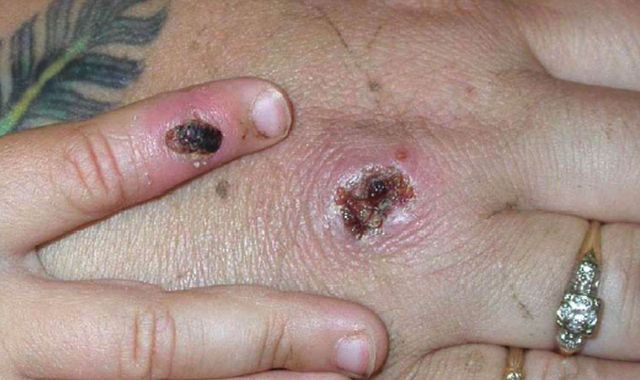Rare case of monkeypox diagnosed in England
Written by News on 04/12/2019
A person has been diagnosed with monkeypox in England.


The rare viral infection is rarely seen outside countries in central and western Africa.
Public Health England (PHE) says the patient is being treated in London, and it is believed they contracted the infection while visiting Nigeria.
They have been transferred to a specialist unit at Guy’s and St Thomas’ NHS Foundation Trust.
Staff are working with experts from PHE to control the spread of the virus, which can cause a severe rash all over the body.
People who might have been in close contact with the patient, including passengers on the same flight back to the UK, are being contacted and provided with information and advice.
Monkeypox – first reported in the UK in September last year – is regarded a mild condition in most cases, which will have no long-term impact on health and take a few weeks to recover from without the need for treatment.
But it is possible for a rash to develop beyond the initial symptoms, which include fever, headache, muscle aches, swollen lymph nodes, chills, exhaustion and backache.
Rashes caused by monkeypox often begin on the face and then spread to other parts of the body, going through various stages before forming a scab, which will later fall off.
Dr Meera Chand, consultant microbiologist at PHE, said people should not be too concerned as the virus does not spread easily and the overall risk to the general public is “very low”.
According to the World Health Organisation (WHO), the virus rarely travels between humans and people tend to be infected through the handling of monkeys, squirrels and rats that carry it.
Dr Chand said: “We are following up with those who have had close contact with the patient to offer advice and to monitor them as necessary.
“PHE and the NHS have well established and robust infection control procedures for dealing with cases of imported infectious disease and these will be strictly followed to minimise the risk of transmission.”
Monkeypox was first identified in humans in 1970 in the Democratic Republic of the Congo, when a nine-year-old boy was infected in a region where smallpox had been eliminated two years prior.
The virus is similar to smallpox and can be fatal, but is considerably milder in the vast majority of cases.
According to the WHO, human cases are mostly reported in rural parts of central and western Africa, with the largest documented outbreak said to have come in Nigeria in 2017.
The first case outside Africa was in the US in 2003.
(c) Sky News 2019: Rare case of monkeypox diagnosed in England







